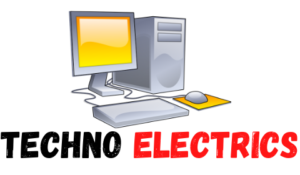You want to take charge of your health and wellness, but finding the time to do so might be difficult, given your obligations to your family, job, and other commitments in life. Here, you will find the smart health devices guide that you need. Modern technological advancements have made it simpler to keep an eye on and care for your health from the comfort of your home.
Smart Health Devices
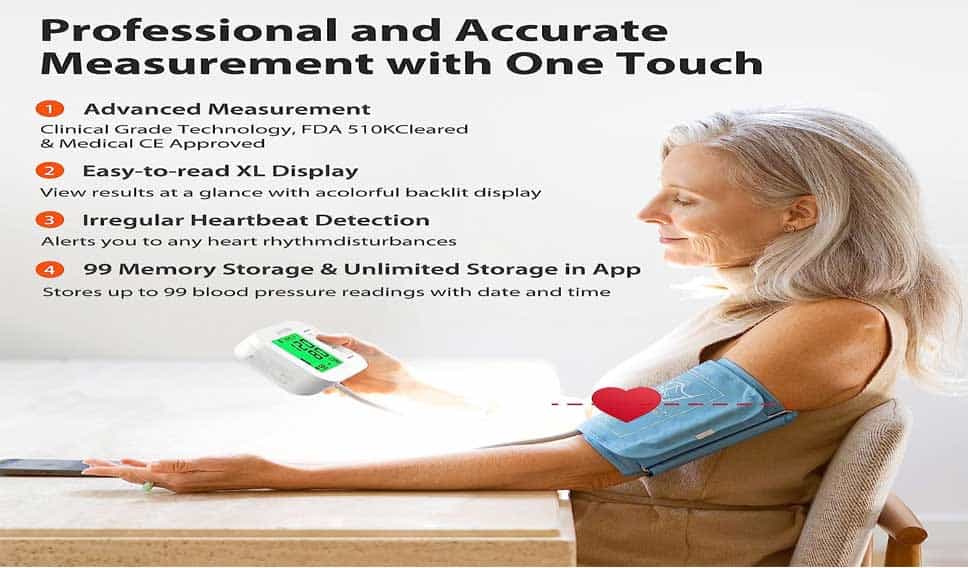
Click the image to buy on Amazon.
Smart health gadgets offer simple methods for measuring important metrics, creating healthier behaviors, and learning insightful information about your health and fitness. This guide will expose you to the most cutting-edge intelligent health gadgets you must have to achieve your wellness objectives.
Smart health gadgets provide a simple approach to improving your health so you can spend less time at the doctor, whether you want to get more sleep, exercise, or reduce stress.
What Are Smart Health Devices?
Innovative health tools are electronically interconnected equipment that can measure and monitor many elements of your fitness and health. Personal health data is gathered and analyzed using sensors and wireless technology before synchronizing to a smartphone app or web portal.
This enables you to gain real-time insights into your health measurements and to decide on your well-being with more knowledge. Some of the most popular types of smart health devices include:
1. Fitness Monitors: Wearable fitness monitors that monitor steps done, distance traveled, calories burnt, and sleep quality are the first options. The majority also monitor heart rate, and some even track specific exercises.
2. Smart scales: Connected Scales that can calculate your body mass index, how much fat you have on your body, how much muscle you have, and bone density. The data is automatically transferred to an app to track trends over time.
3. Blood pressure monitors – These small, portable blood pressure cuffs can track your blood pressure levels and send the information to your doctor.
4. Glucose monitors – To help people with diabetes better control their condition, linked glucose meters and continuous glucose monitors automatically log blood sugar readings and insulin dosages are available.
5. Sleep monitors: wearables like rings or intelligent health devices provide a convenient way to gain valuable insights into your health and fitness. By tracking key metrics over time, you can make better lifestyle choices and identify any health issues early for preventive care.
With various options at different price points, smart devices suit most needs and budgets. Regular use can help you stay on top of your health and meet wellness goals.
Also Read: What Medical Devices Should I Have At Home?
Popular Types of Smart Health Devices
As technology continues to advance, smart health devices have become increasingly popular and sophisticated. These connected devices can help you better understand and improve your health and wellness.
i. Fitness Trackers
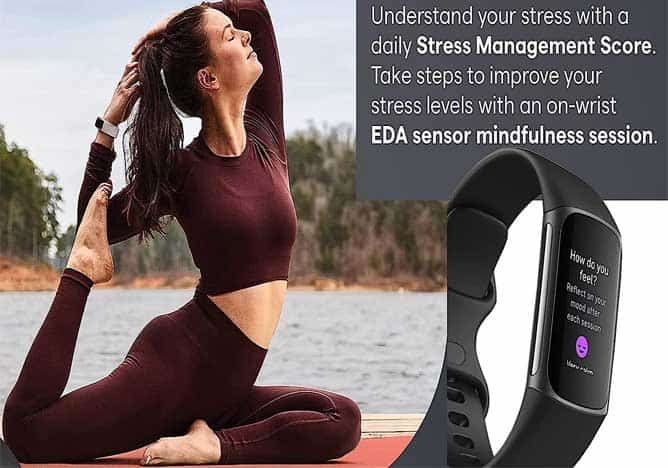
Click the image to buy on Amazon.
Fitness trackers monitor your physical activity and health metrics like steps taken, distance traveled, calories burned, and sleep quality. Popular brands like Fitbit, Garmin, and Xiaomi offer affordable, full-featured fitness trackers.
ii. Smart scales
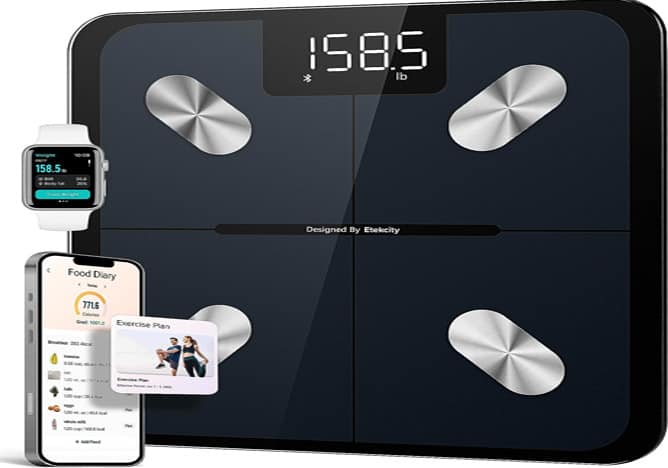
Click the image to buy on Amazon.
Intelligent scales measure not just your weight but other metrics like body fat percentage, BMI, muscle mass, and bone density. Connected to your fitness tracker or health app, smart scales provide a more holistic view of your health and fitness over time.
Popular options include Withings Body+, Fitbit Aria, and Eufy Smart Scale.
iii. Blood pressure monitors
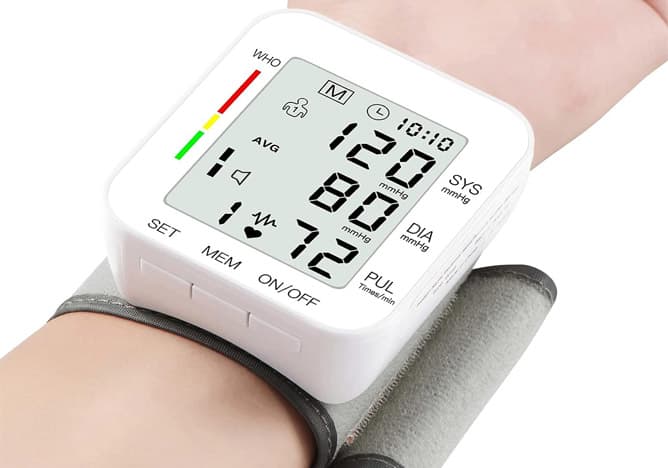
Click the image to buy on Amazon.
Smart blood pressure cuffs allow you to easily monitor your blood pressure at home and track your readings over time. Many can detect irregular heartbeats and provide comprehensive health reports to share with your doctor. Top brands include Omron, iHealth, and Withings.
iv. Glucose monitors
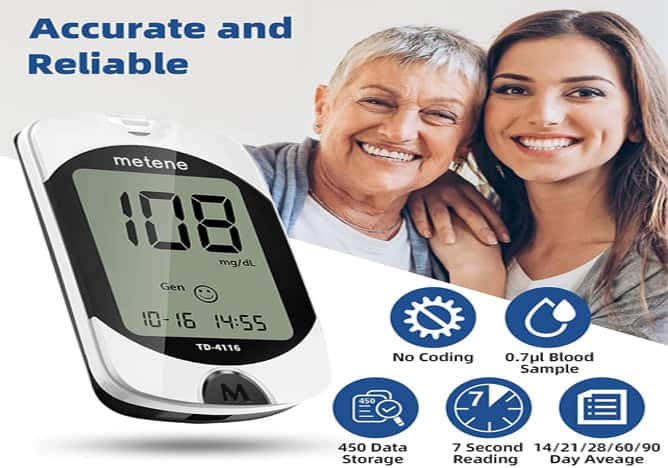
Click the image to buy on Amazon.
For those with diabetes, smart glucose monitors make it simple to check your blood sugar, log results, set reminders, and share reports with your healthcare team. Leading connected glucose monitors include Contour Next, OneTouch Verio, and Dario Blood Glucose Monitoring System.
With the latest generation of smart health devices, making informed decisions about your well-being and maintaining healthy habits is easier than ever. By tracking key biometrics and health metrics over time, these connected solutions provide motivation and accountability as you go towards enhanced health and physical fitness.
Benefits of Using Smart Health Devices
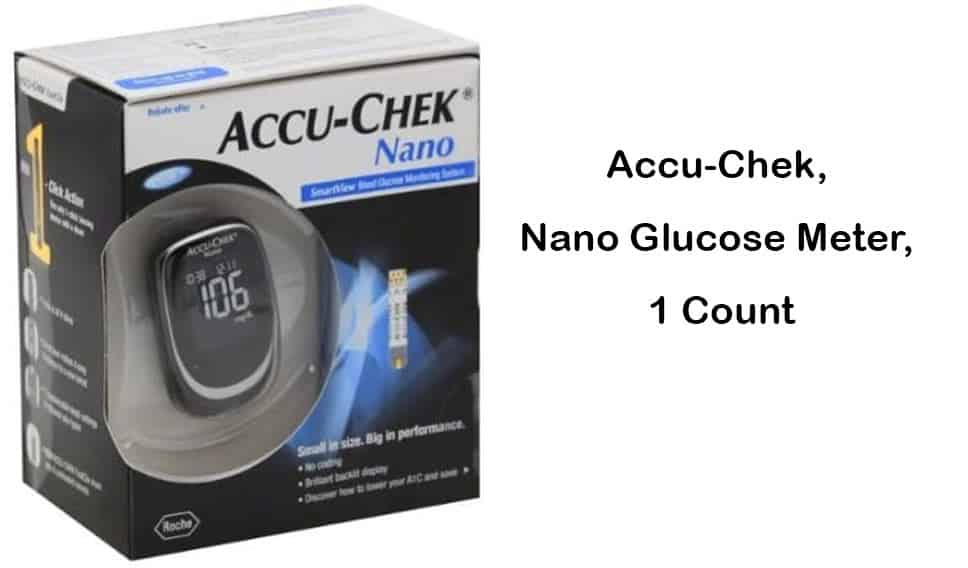
Click the image to buy on Amazon.
Smart health devices provide several benefits over traditional health monitoring methods.
Improved Accuracy
Smart health devices use advanced sensors and algorithms to track health metrics with a high degree of accuracy. Wearable fitness trackers can precisely monitor steps taken, calories burned, and sleep quality. Smart scales provide an exact measurement of weight and body composition.
Connected blood pressure monitors and glucometers deliver laboratory-grade results at home. The data from these devices provides an accurate picture of your health and fitness over time.
Also Read: Wrist Blood Pressure Monitor Accuracy
Continuous Monitoring
Whereas visiting a doctor provides a single snapshot, smart health devices offer continuous health monitoring. Wearable trackers can monitor your activity, heart rate, and sleep around the clock. Smart scales, blood pressure monitors, and glucometers allow you to check your stats as often as needed.
This constant stream of biometric data enables you and your doctor to detect health changes and trends that would otherwise go unnoticed. Continuous monitoring also gives you greater insight into how your daily habits and routines influence your health.
Shared Data
The data collected by smart health devices can be shared electronically with your doctor and other care providers. By sharing your data, your doctor can have a more comprehensive view of your health and provide personalized care recommendations.
Many intelligent health devices also allow you to share data with family members or caregivers so they can offer support. Some machines feature companion mobile apps that make sharing your data with whoever you choose easy.
In summary, intelligent health devices deliver significant advantages through increased accuracy, continuous monitoring, and seamless data sharing.
When appropriately used under medical guidance, these devices have the potential to improve health outcomes, enhance the patient experience, and reduce healthcare costs. The future of intelligent health technology looks extremely promising.
Factors to Consider When Choosing a Smart Health Device
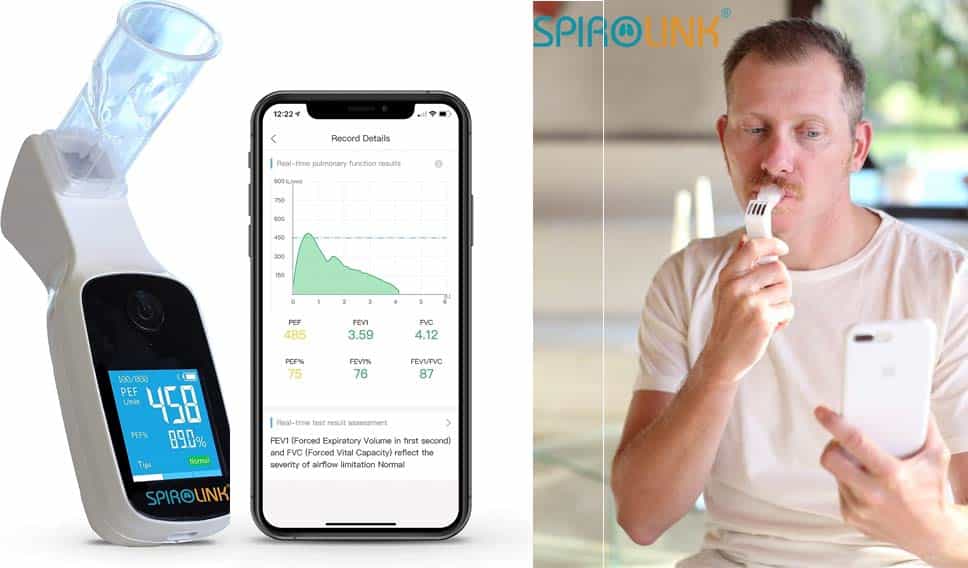
Click the image to buy on Amazon.
When choosing an intelligent health device, several factors are essential to consider:
Compatibility
Ensure the device is compatible with your existing technology, like smartphones, tablets, and fitness trackers. Many smart health devices connect via Bluetooth to sync with apps and other devices. Check which mobile operating systems are supported, like iOS and Android.
For the best experience, choose a device that works with your current technology.
Accuracy
The accuracy and precision of the device’s sensors and measurements matter, especially for those tracking vitals. Look for the manufacturer’s clinical validation and accuracy ratings to ensure the device provides correct data. For some medical devices, FDA approval may also be required.
Data security
Smart health devices collect and store sensitive health data, so data security and privacy are crucial. See if the device allows you to control who has access to your information and how it is stored. Choose a device from a reputable company with a clear privacy policy that does not share or sell personal data to third parties.
Ease of use
The device should be simple to set up, navigate, and operate. Look for an intuitive, user-friendly interface and app you can easily understand and engage with. Complicated devices with a steep learning curve tend to end up in a drawer, unused.
Additional features
Consider what additional capabilities would be helpful, such as activity and sleep tracking, heart rate monitoring, blood pressure readings, medication reminders, or emergency alerts. The range of features can vary significantly based on the device type and brand.
Choose one that provides the specific options that would benefit you the most. In summary, research different smart health devices to find one that suits all your needs and preferences.
An ideal machine should be compatible, accurate, secure, easy to use, and have valuable features — enabling you to leverage technology for better health and wellness fully.
Also Read: How Many Lungs Clearing Devices Are Available?
The Future of Smart Health Devices
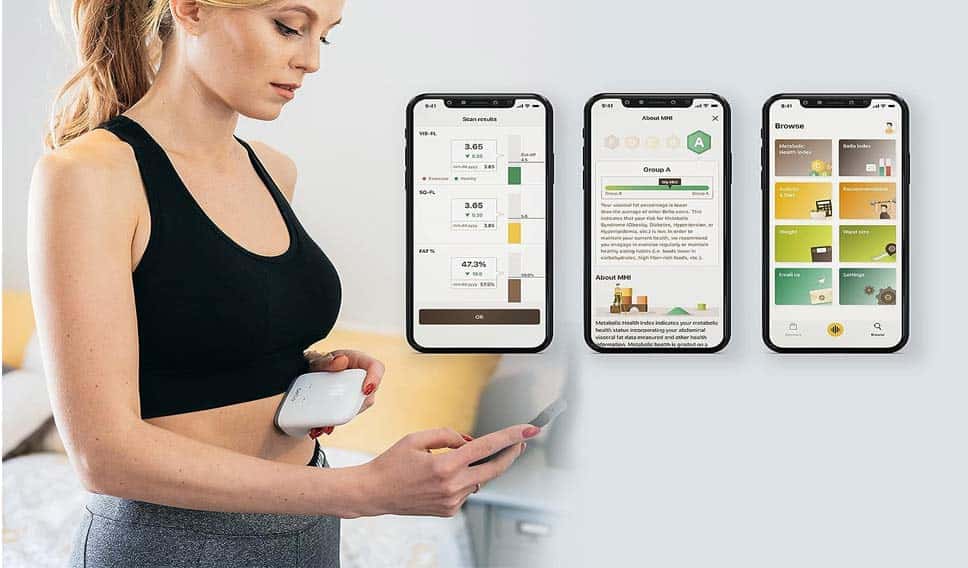
Click the image to buy on Amazon.
The future of smart health devices is bright. As technology advances, these devices will become even more complicated and a part of our everyday lives.
Increased Accuracy and Personalization
Smart health devices will leverage sensors, artificial intelligence, and machine learning advances to provide increasingly customized and accurate health insights and recommendations.
Devices will gather more data about our biometrics, activities, and lifestyles to build comprehensive health profiles. These profiles will enable machines to provide advice tailored to each individual’s needs and goals.
Seamless Integration
The next generation of smart health devices will integrate seamlessly into our daily routines. Wearable devices will become smaller, more comfortable, and able to provide monitoring and feedback continuously throughout the day.
Smart home devices will provide ambient tracking of air quality, sleep quality, and more without requiring manual input. Virtual assistants will be more prominent in helping us track health metrics, set reminders, and make healthy lifestyle changes.
Healthcare Partnerships
Smart health devices will work closely with healthcare providers and insurers to improve health outcomes. Doctors will have access to data from smart devices to remotely monitor patients, gain early detection of potential health issues, and make more informed diagnoses and treatment plans.
Health insurers may provide incentives for members to use smart health devices as a way to promote health and wellness. In summary, the future of smart health devices points to a world with increasingly intelligent, personalized technologies that empower people to understand better and improve daily health and well-being.
While still emerging, smart health devices show significant promise to transform healthcare through technology positively. The possibilities for enhancing health and transforming lives through smart devices are endless.
Conclusion
In closing, smart health devices offer exciting opportunities to take control of your health and wellness. With innovative tools for monitoring activity levels, sleep quality, heart rate, blood pressure, and more, you have the insights to make informed lifestyle changes and health decisions.
While the range of devices may seem overwhelming, start with your key priorities and needs. Do some research to compare options and find tools suited to your budget and technical abilities. Your health is worth the investment in time and resources.
By leveraging innovative technology, you can gain a holistic view of your health and make the best choices for living life fully and on your terms. The future is bright for smart health – your future can be, too.
Keep Reading
- Disruptive Innovation in Healthcare: A New Era of Transformation
- Latest Tech Devices to Cure Heart Attack: A New Dawn in Cardiac Care
- Latest Devices for Living a Healthy Life
Recent Posts
Every man needs elegant male bedroom design ideas to design his bedroom that is both fashionable and cozy. An exquisite bedroom provides a peaceful haven from the stress of everyday life in addition...
You may live in an apartment that is not only more fun to live in but also a real representation of your own style by creating a warm and inviting look. Due to these warm apartment aesthetic ideas,...
